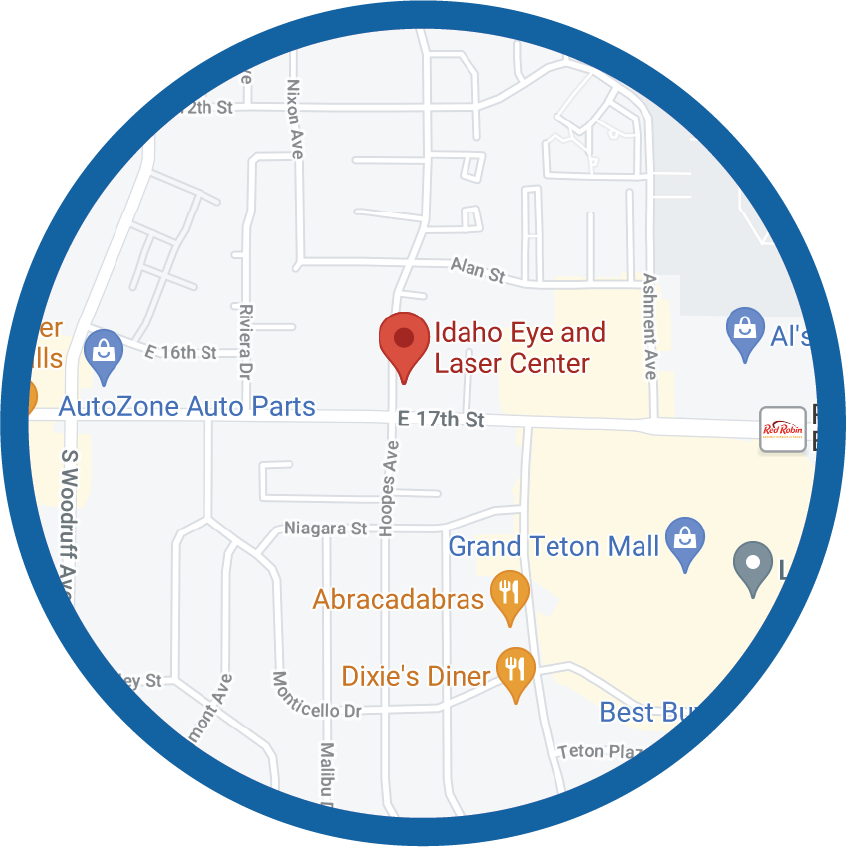Macular Degeneration
Macular degeneration is one of the leading causes of vision loss in the United States. It is a progressive disease that affects the macula, the center part of the retina (the back of the eye).
The light-sensitive retinal tissue controls how you see images: as images focus on the retina they are converted into electrical impulses that travel to the brain via the optic nerve. If there is damage or deterioration of the macula, your central vision will be disrupted.
Central vision is vital to perform common daily tasks such as reading, driving, recognizing faces and seeing fine details.
Many older people develop macular degeneration as part of the natural aging process. There are different kinds of macular problems, but the most common is Age-related Macular Degeneration (AMD). This disease is most common in people over 60, but can appear as early as age 40. If you are over age 60, routine eye exams can diagnose early signs of this degenerative eye disease.
Macular Degeneration Symptoms
Macular degeneration affects central vision, but not typically peripheral vision. In the early stages you may not have any outward symptoms. As the disease progresses you may experience:
- Blurriness
- Dark areas
- Distortion (typically straight lines or objects appearing wavy or crooked)
- Permanent loss of central vision
Types of Macular Degeneration
- Dry Macular Degeneration: accounts for 90% of all cases and progresses slowly. It is caused by the build-up of yellow drusen deposits under the macula that causes the macula to thin and dry out.
- Wet Macular Degeneration: this is a more serious form that causes severe, rapid vision loss. It occurs when abnormal blood vessels grow under the macula. If they leak blood or fluid, this will cause the macula to become distorted.
Reasons for Macular Degeneration
Scientists do not know the exact cause of macular degeneration or why some people develop this disease. Heredity, malnutrition, race, smoking, and UV light exposure may play a role in increasing your risk for macular degeneration. It makes sense to follow a healthy lifestyle to help protect your vision:
- Wear UV protection sunglasses when outdoors
- Eat a healthy diet
- Stop smoking
Treatment for Macular Degeneration
Unfortunately, there is no cure for age-related macular degeneration. However, there are treatments that can slow the progression of the disease:
- Anti-angiogenic medication injections to stop new blood vessels from forming or halt leaking of new blood vessels
- Laser therapy to destroy abnormal blood vessels
- AREDS (Age-Related Eye Disease Study) vitamin supplements
- Photodynamic therapy, the combination of the drug verteporfin and a cool laser is used to stop the leak and prevent future leaks
- Laser photocoagulation to seal leaking blood vessels with a laser
- Anti-VEGF (vascular endothelial growth factor) injections to reduce the risk of abnormal blood vessel growth
Macular degeneration is estimated to affect over 11 million Americans. If you are one of those individuals, you are not alone. Our macular degeneration doctors in Southeast Idaho can perform a comprehensive dilated eye exam to help diagnose your condition and recommend treatment options.
If you are experiencing any central vision problems, don’t wait until your vision is permanently lost. Contact us today to schedule an eye exam in Idaho Falls.




